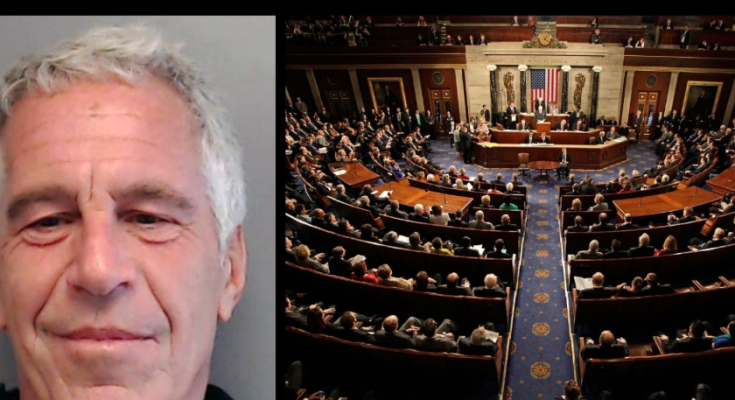
This article may contain commentary
which reflects the author’s opinion.
Rep. Jamie Raskin (D-MD), the ranking Democrat on the House Judiciary Committee, is facing mounting backlash after publishing a trove of private prison emails written by convicted human trafficker Ghislaine Maxwell.
Attorney Leah Saffian, who represents Maxwell, blasted Raskin’s actions as “a gross abuse of power” after workers at Federal Prison Camp Bryan in Texas were fired for leaking the correspondence. The emails were reportedly obtained without authorization and illegally passed to Raskin’s office before being released publicly.
“The congressman is a ranking member of the House Judiciary Committee, an attorney and law professor,” Saffian said Friday. “He must be aware that his conduct undermines the whole legal process. His action should be a matter for professional disciplinary action.”
Federal Bureau of Prisons officials confirmed the termination of multiple employees involved in the unauthorized access. Saffian said their decision to share the messages — and Raskin’s subsequent publication of them — amounted to “a breach of constitutional protections, including the First, Sixth and Fourteenth Amendments afforded to all prisoners.”
The emails revealed Maxwell’s uncharacteristic optimism about her stay at the Bryan facility, describing a markedly different environment than the Florida prison where she was previously held.
“The food is legions better, the place is clean, the staff responsive and polite,” Maxwell wrote in one message. “I have not seen a single fight, drug deal, passed-out person or naked inmate running around. I am much, much happier here and more importantly, safe.”
In another note, she mocked her old surroundings: “The kitchen looks clean too — no possums falling from the ceiling to fry on ovens and mingle with the food being served.”
Saffian said the disclosure was “just the latest example of Ms. Maxwell’s constitutional and human rights being ridden roughshod over,” adding that the Justice Department’s inspector general previously documented deplorable conditions at the Tallahassee facility where Maxwell had been housed.
“The system failed her once. Now a sitting member of Congress has compounded that failure,” she said.
Raskin appeared to use the leaked communications to suggest Maxwell might be preparing a request for the Trump administration to grant her clemency. In a letter sent to President Trump, he claimed a “whistleblower” had alerted him that Maxwell was drafting a commutation application for review by the administration.
Saffian forcefully denied that assertion. “Ms. Maxwell has not requested a commutation or made a pardon application to the second Trump administration,” she said. Instead, Maxwell plans to file a petition in Manhattan federal court seeking to overturn her 2021 conviction on new evidence she says “would have had a material impact” on the trial’s outcome. Maxwell, now 63, is serving a 20-year sentence for aiding Jeffrey Epstein in grooming and trafficking underage girls.
Republicans on Capitol Hill quickly seized on the controversy, arguing that Raskin’s conduct violated ethical boundaries. A senior GOP aide on the Judiciary Committee said Raskin’s decision to publicize inmate communications “shows a reckless disregard for due process and confidentiality standards.”
The aide added, “If the situation were reversed — if a Republican had released private inmate correspondence to damage a Democrat’s narrative — Raskin would be screaming for an ethics investigation.”
Saffian, for her part, said the situation underscores a troubling double standard. “Federal officials are sworn to uphold the law, not weaponize it,” she said. “By exploiting confidential communications, Mr. Raskin has not only compromised my client’s legal rights but set a dangerous precedent for political interference in the justice system.”
Legal experts said the episode raises thorny constitutional questions about the boundaries between congressional oversight and privacy rights. While members of Congress have wide latitude to investigate federal agencies, the release of inmate communications without court authorization could expose Raskin or his staff to potential censure or litigation.
“This is a gray area that brushes up against due process,” said one former federal prosecutor. “Even if the intent was transparency, the method may have crossed the line.”
As the fallout continues, Saffian confirmed that Maxwell’s legal team is preparing a formal complaint to the Office of Congressional Ethics and may pursue civil action over the unauthorized release.
“This won’t end here,” she said. “Members of Congress are not above the Constitution.”


